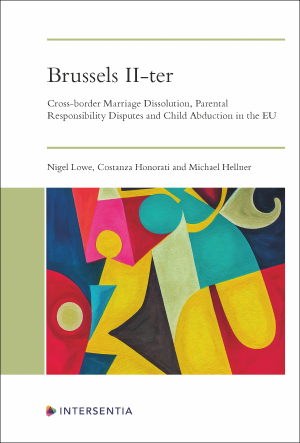
The ‘Brussels II’ Regulations have a long history and provide the EU’s rules on jurisdiction, recognition and enforcement of matrimonial matters, matters of parental responsibility, and international child abduction. In 2016, the EU Commission published its Proposal for recasting what was then Council Regulation No 2201/2003 (‘Brussels II-bis’). There followed lengthy negotiations that resulted in the recast Council Regulation No 2019/1111 (‘Brussels II-ter’), which came into force in August 2022. Brussels II-ter has made substantial changes. Brussels II-ter is the key EU instrument for dealing with cross-border issues involving recognition of divorce, custody and access disputes over children, international abduction and the placement of children from one Member State to another.
This book provides an in-depth discussion of this complex Regulation. Written by three renowned experts, this comprehensive analysis benefits from the collective scope of their experience and knowledge, not only of their respective jurisdictions (Italy, Sweden and the UK) but also more generally of international family law and private international law. Brussels II-ter: Cross-border Marriage Dissolution, Parental Responsibility Disputes and Child Abduction in the EU provides not only a clear exposition of the Regulation’s provisions, but also a critical evaluation of them.
Rather than an Article-by-Article analysis, the book instead comprises separate chapters on discrete parts covered by the Regulation—namely, on the history and scope of Brussels II-ter; common rules on court proceedings; jurisdiction in matrimonial matters; parental responsibility; coordination of proceedings; international child abduction; the hearing of the child; recognition, enforcement, authentic instruments and agreements; and cooperation in matters of parental responsibility. An exposition of the relationship between the EU and the UK following Brexit concludes this volume, which discusses, among other issues, the often problematic inter-relationship between Brussels II-ter and the 1996 Hague Child Protection Convention.
The book provides indispensable reading for those who will have to apply the Regulation, such as judges and practitioners, and students who want a clear history, scope and analysis of the Regulation and its impact on the field of cross-border family law.